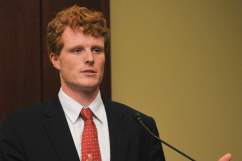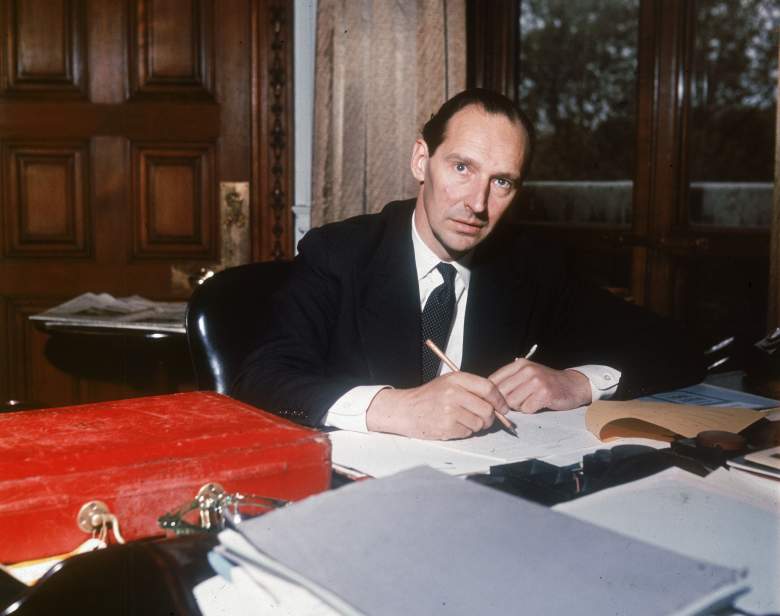
(Photo by Hulton Archive/Getty Images).
Newly discovered letters written by the late British diplomat David Ormsby-Gore reveal that he proposed to Jacqueline Kennedy in 1967, four years after her husband, President John F. Kennedy was assassinated. Ormsby-Gore, who was the U.K. ambassador to the U.S. during the Kennedy Administration, was rejected by Jackie Kennedy, who later married Aristotle Onassis.
Osmby-Gore was also the 5th Baron Harlech, also known as The Lord Harlech. Like Kennedy’s life, his own was beset by tragedy. He was a widower when he asked Kennedy to marry him.
Here’s a look at his life and the letters that Bonhams is putting up for auction.
1. Jackie Kennedy Told Ormsby-Gore That She Wanted to Marry ‘Somebody Who Is Not Part of all My World of Past and Pain’
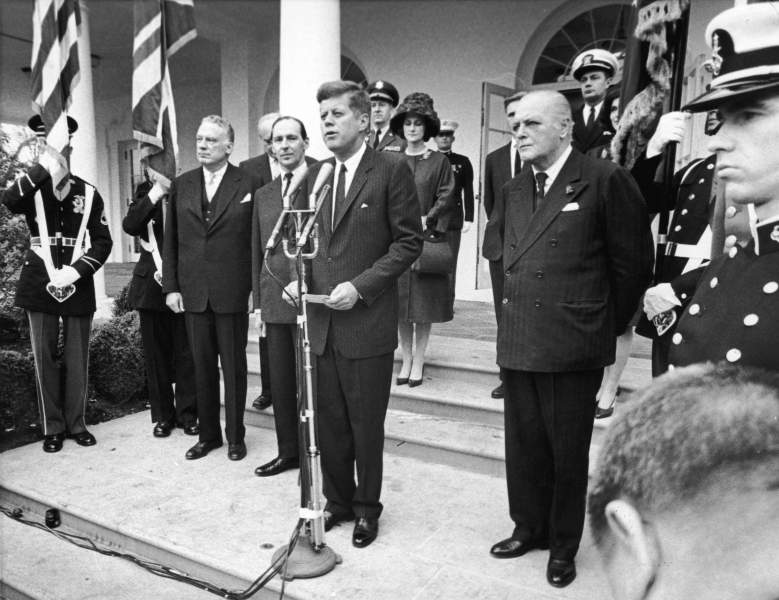
Ormsby-Gore can be seen to Kennedy’s left in this photo, showing the president making Winston Churchill an honorary U.S. citizen. (Getty)
A box of 18 letters written by Ormby-Gore to members of the Kennedy family was found at his home in Wales in January, reports the New York Times. Bonhams will put them up for auction in March.
One letter, from November 1967, shows that Ormsby-Gore wanted to marry Kennedy, but it appears that his long-term association with the Kennedy family was one reason why she rejected him. The letter was written by Kennedy on stationary that belonged to Onassis’ yacht.
“If ever I can find some healing and some comfort — it has to be with somebody who is not part of all my world of past and pain,” she wrote. “I can find that now — if the world will let us.”
In the letter, she wrote that she saw Ormsby-Gore more as a brother. “You are like my beloved beloved brother — and mentor — and the only original spirit I know — as you were to Jack.”
Kennedy, who eventually married Onassis in 1968, wrote that Onassis is “lonely and wants to protect me from being lonely. And he is wise and kind. Only I can decide if he can, and I decided. I know it comes as a surprise to so many people. But they see things for me that I never wanted for myself.”
The collection does include a draft Ormsby-Gore wrote in response to Kennedy’s rejection. HE wrote:
All the pathetic plans I had brought with me for visits to Cyrenaica, holidays near one another and a whole variety of solutions to our marriage problem, including one for a secret marriage this summer — plans which I saw us eagerly discussing, calmly and with complete frankness as we did at the Cape and in Cambodia for the next wonderful ten days — all had become irrelevant trash to be thrown away within a few hours of my landing in New York. As for your photograph I weep when I look at it. Why do such agonizing things have to happen? Where was the need for it?
2. There Was Speculation Back in 1967 That Ormsby-Gore Would Marry Kennedy
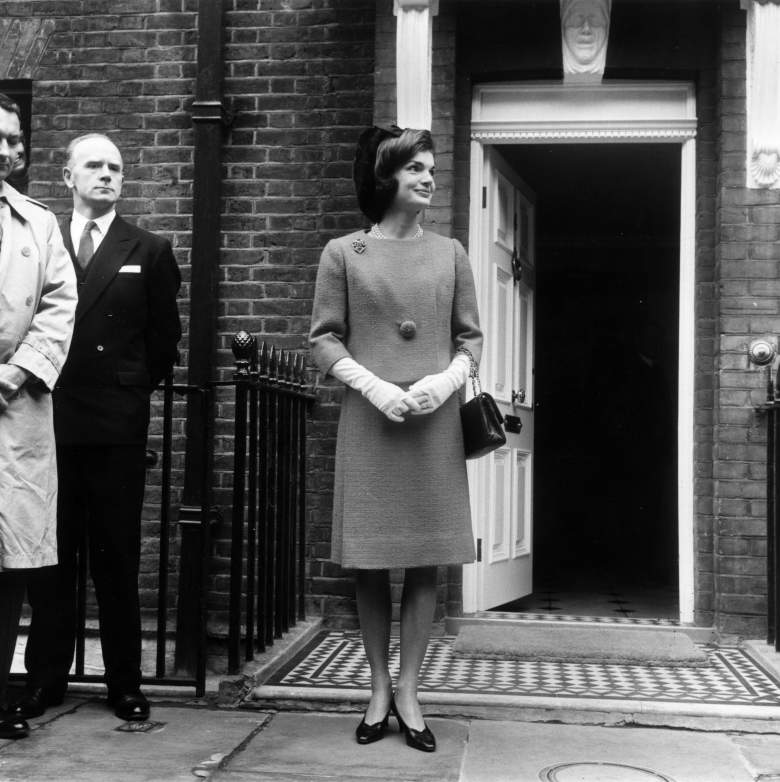
Jackie Kennedy in London in 1962. (Getty)
There was speculation back in 1967 about Orsmby-Gore’s relationship with Kennedy, suggesting that the two were romantically involved. In December 1967, the Chicago Tribune reported on the bond between the two in a profile of the diplomat.
“I think people who knew David and Jackie suddenly realized they both were alone in life with this incredible tie between them,” a friend of Kennedy’s told the Tribune at the time. “So, as time passed, a few friends sort of said, ‘Gee, wouldn’t it be wonderful if someday they could get together, make one another happy again, fall in love.'”
Before that profile was published, Ormsby-Gore’s wife, Sylvia Thomas, died in a car crash. In response to he wrote to her after Syliva’s death, Kennedy replied, “Your last letter was such a cri de coeur of loneliness — I would do anything to take that anguish from you. You want to patch the wounds & match the loose pairs — but you can’t because your life won’t turn out that way.”
3. Ormsby-Gore Was Ambassador to the U.S. During the Cuban Missile Crisis
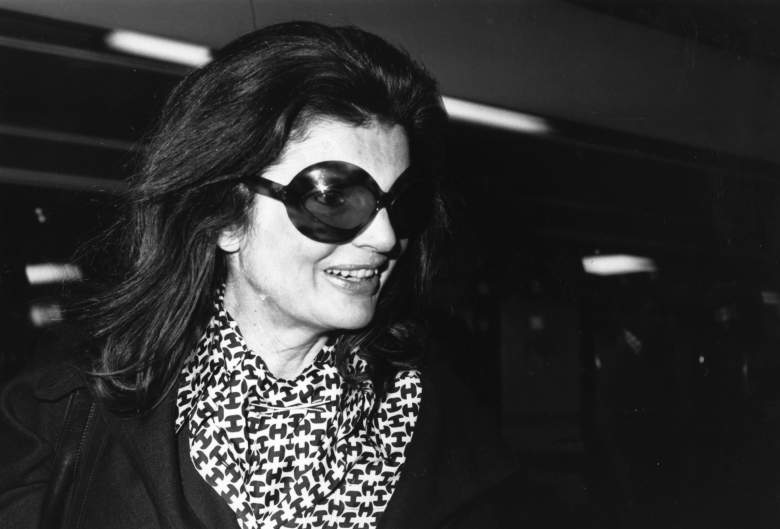
Jackie Kennedyi n 1968, after her marriage to Aristotle Onassis. (Getty)
Ormsby-Gore was the British Ambassador to the U.S. from 1961 until 1965, working during the John F. Kennedy and Lyndon Johnson administrations. He played a major role in the Kennedy administration as a foreign policy adviser. He was also a key player in the 1962 Cuban Missile Crisis.
According to a 1968 Look Magazine profile, Ormsby-Gore told John F. Kennedy that it wouldn’t be a good idea to retaliate against the U.S.S.R. by attacking. They decided that a blockade would work.
“The next day, we waited. The Navy was out searching, planes were flying around. And then — about midday — reports started to come in
that the Russian ships had stopped,”Ormsby-Gore recalled in 1968. “This was the moment, I felt, when Khrushchev’s nerve had broken, and we were going to get out of the crisis. Many serious moments were still to come. But Khrushchev had backed down to the point of stopping the ships, and if the United States kept the pressure on, he would agree to say: ‘Right. The crisis is over.’ It was a very exciting day.”
4. Ormsby-Gore Became Friends With John F. Kennedy When They Were in College
According to Ormsby-Gore’s New York Times obituary, he knew John F. Kennedy when they were at university. They both attended the London School of Economics when John F. Kennedy’s father, Joseph P. Kennedy, was the U.S. Ambassador to the U.K. In addition, John F. Kennedy’s sister Kathleen married Ormsby-Gore’s cousin in 1944.
As The New York Times notes, the newly discovered letters do show how close Ormby-Gore was to the Kennedys. The collection included a letter written by Robert F. Kennedy and a piece of paper with the instructions for pallbearers at Robert F. Kennedy’s funeral in 1968.
Jackie Kennedy did attend Ormsby-Gore’s funeral in 1985. He died after a car crash at age 66.
5. Ormsby-Gore’s Son Died Young as Well, at Age 61 & His Daughter Died of a Heroin Overdose in 1995
Osmsby-Gore’s son, Francis Ormsby-Gore, the 6th Baron Harlech, died in March 2016, The U.K. Independent reported. Like his father, he also died young, at age 61.
Like his father, Francis was also a conservative politician and took his role in the House of Lords seriously. However, he was criticized for trips to Bosnia and meetings with war criminals Radovan Karadzic and General Ratko Mladic.
Tragedy followed almost all of Francis’ siblings. His sister, Alice, almost married Eric Clapton and died of a heroin overdose in 1995. She was only 42. His brother, Julian, battled depression and committed suicide at 33 in 1974.
Only two of Ormsby-Gore’s children are still alive, his daughters Jane Teresa Denyse Ormsby-Gore and Victoria Mary Ormsby-Gore.
